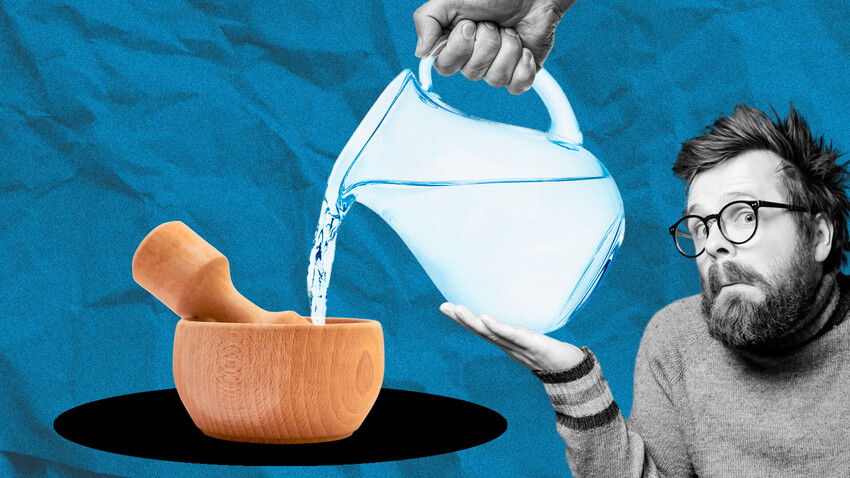
So, it turned out that, instead of doing useful things, for example, grinding grains, water was “ground”. It is as useless as carrying water in a sieve.
There are other variants of the origin of the phrase. For example, Vladimir Dal, author of the ‘Dictionary of the Russian language’, wrote that, in the old days, monks were forced to grind water as a punishment. And, in the monasteries, this measure migrated from ancient writings, understood very literally.
For example, Lucian of Samosata wrote about the useless venture with water in his work: ‘Hermotimus, or On the Choice of Philosophy’: "...you are chasing a shadow, forgetting the body or the skin of a snake, forgetting about the reptile itself or, perhaps, you act like someone who, having filled a mortar with water, would start grinding it with an iron pestle, thinking that he is engaged in some necessary workand not suspecting that you can, as they say, grind off your shoulders - but water will still remain water."
Dear readers,
Our website and social media accounts are under threat of being restricted or banned, due to the current circumstances. So, to keep up with our latest content, simply do the following:
If using any of Russia Beyond's content, partly or in full, always provide an active hyperlink to the original material.
Subscribe
to our newsletter!
Get the week's best stories straight to your inbox